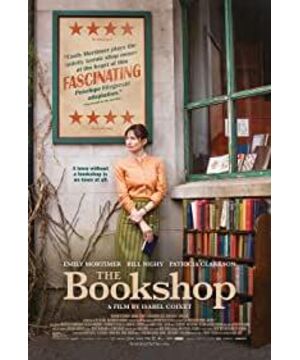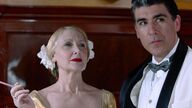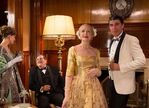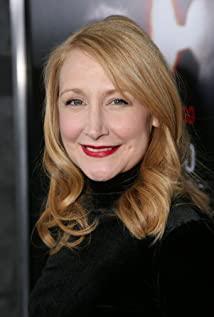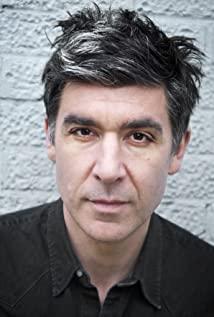Adapted from Penelope Fitzgerald's "The Bookstore", the film of the same name almost reproduces the original book as it is, and captures the process of a seemingly peaceful little bookstore from its opening to its closing, which is sincere and touching. This British female writer, who shares the same name as another great writer, started writing and became famous very late, but it did not prevent her from becoming a self-contained entity in the field of fiction. Bookstore as well.
This small town named Harburg is located on the seaside, with a humid climate. The fishing industry is a pillar industry. The background of the era is set in 1959. The old-fashioned, conservative and prejudiced atmosphere is the mainstream, which can also reflect the British society at that time. Like any small town in the world, Harburg has its own ecosystem. The solidification and opposition of classes have long been formed "naturally", and everyone plays their roles step by step. Ordinary people who are busy with their livelihoods obviously have no time to take into account the improvement of their spiritual level, and remarks such as "real life without reading is enough for me" are obviously the voice of most people; the upper class is busy planning and attracting political activities, among which Taking the general's wife, Mrs. Garmat as a typical example, Stead Manor became the town's discussion center and a gathering place for dignitaries. Florence, a woman who has been widowed for many years, suddenly aroused the desire to open a bookstore one day, and fought with lawyers, bankers, and the town's dignitaries by herself to be neither humble nor arrogant. The confrontation forces, sadly closed the store and left home.
pride and Prejudice
In the original book, there is an old house "knock on the door" setting, which can better highlight the immutability of the town and is more terrifying than the ghost's haunting. The dark power in people's heart slowly swallows up a With the soul of a dream, the living conditions of Florence are crushed abruptly until she has nowhere to escape. The film depicts the relationship network of the town residents in a slow tone.
When the news of Florence's opening of a bookstore came out, it obviously touched Mrs. Garmat's interest in transforming the old house into a so-called "art center", so she first invited Florence to attend the manor party as a means to win over. They also used all forces to besiege the bookstore, and the residents of the town became accomplices in a state of half onlookers and half willingness. The delay and inaction of lawyers harbored discrimination against women, and they were not optimistic about the bookstore industry itself; bankers were With sly eyes, he waits for the day when the bookstore closes; Mr. North, disguised as a friend, sneaks in as a bookstore assistant and secretly makes the bookstore run into a tailspin; Mrs. Garmat's nephew uses an administrative position to codify the law, "proof" The illegal use of the old house; the original fish shop was turned into a new bookstore to form a competition. At the end, under the gazes of everyone, Florence, who was struggling hard, was seen to leave. The selfishness and darkness in human nature do not have the dramatic expression of opening and closing. Instead, under the hazy sky, it appears unusually calm, showing British restraint and restraint. Hundreds of wars under the waves.
If ordinary people have prejudice and misunderstandings about women opening bookstores, then the upper class with the right to speak is arrogant and vows to kill the "unpopular". The dilapidated and old houses that were previously idle are no one cares, and now they have become a fragrance. After all, how can a commoner dare to get involved in cultural undertakings? Mrs. Garmat clearly could not tolerate the mere widow not being deployed. In addition, Florence's most loyal supporter, Mr. Browntich's persistent disregard for Mrs. Garmart (never invited to tea at Hult Manor), also made her secretly angry, which is all in Brown. When Mr. Tisch condescended to visit, it was revealed that Mrs. Garmat's arrogance and vanity not only ruined the bookstore, but also made the undisputed Mr. Browntich the most tragic and heartbreaking character in the film. Under the pretense of high-sounding elegance, it is always the inclination of power and the essence of interest that drives it.
warmth and hope
"A good book is the precious blood condensed from the soul of a master, and it is forever cherished for the life beyond life. Books are a necessity." Florence's love for books is depicted in the film. Reading in the quiet night, light and shadow flowed, this wonderful time allowed her to endure the difficulties of loneliness, and she was able to relive the beauty of reading with her husband from time to time. This is a proof of her happiness and a sign of her independence and self-improvement. She is also convinced that "in a bookstore, people will never be alone." It is with this belief that she has the courage to challenge the secular vision at that time.
It is precisely this courage that made Florence two loyal friends in the harsh living environment. One is Mr. Blanchet, who was demonized in the rumors of the public. He doesn't ask about the world and keeps a closet, but he gives Florence the most powerful and sincere support - becoming the first customer of the bookstore and providing bookstore buying advice. , and support in time when the bookstore is at its most critical. This silent gentleman can obviously appreciate the unique beauty that toughness as a virtue endows with women, and he also appreciates Florence's persistent reading taste, so this friendship gradually brewed and formed in the book exchanges. In the original book, the relationship between the two was treated as a confidant who cherished each other, but in the film, there was a hidden affection, which was slightly redundant. After all, they focused more on mutual admiration and cherishing in spirit, and appreciation without other emotions was more precious.
Mr. Browntich's recognition of "Lolita" was a watershed in the film, which not only further consolidated the bond between the two, but also challenged the conservative atmosphere of the town, and the bookstore became the target of public criticism. Nabokov's book has been controversial since its publication, and the town's response is a microcosm.
Another friend is Christie, a little girl who came to work. Although she doesn't like reading, she can understand Florence's advantages at a young age. In the small bookstore, the cold and damp old house is warmed with the friendship of the year. About Christie, she enters Florence's life chronology with two amazing things - the burning of the old house, and the story narrator who is only revealed at the end. Different from the common God's perspective in the original book, the film uses narration intervention, so at the beginning of the opening, the audience will have questions: "Who is this narrator? Why is the heroine so familiar?" It turned out to be the "Inheritance" bookstore Spiritual Christie, after a few years, she continued to realize her dream, and her childhood dream finally came true. This is exactly the constant power that reading gives us.
At the end of the film, a tribute to John Berger was played, which made people cry - "As soon as I read, I lost all sense of time." Although she left, the reading never ended, so all the loss had meaning.
View more about The Bookshop reviews


